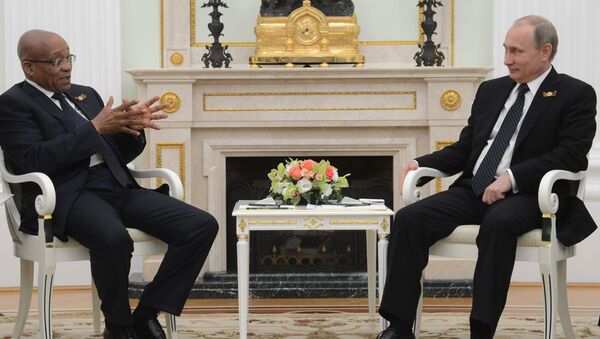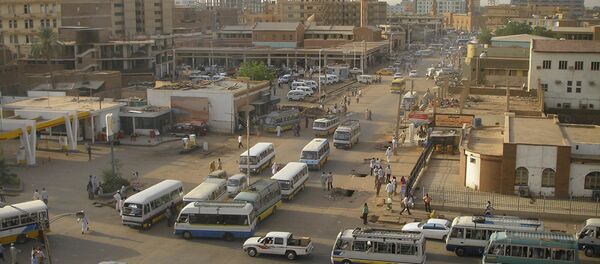Stepping up cooperation with Africa is a substantial part of the Kremlin’s strategy, the author asserted, as Africa is becoming a stronger international partner.
“The days of American global dominance are ending, and Russia is yet again making its way to the forefront of international affairs, starting with Africa,” the author said.
The continent’s rapidly increasing global economic relevance is causing other countries to step up to the plate, but Russia has a legacy network of political and economic connections to African countries stretching back to the Cold War era.
The close ties were recently consolidated by Russian investments across the region, growing at an eye-opening rate. Overall trade has increased tenfold over the past ten years. Within a decade exports jumped from just under $950 MN to approximately $4 BN, and imports from Africa rose from some $350 MN to about $1.6 BN.
Extracting mineral resources from countries like Angola, South Africa, Guinea and Nigeria — countries which are home to major Russian investment projects — is profitable, even with Russia “sitting on 35 percent of the world’s reserves in mineral deposits.” And Russia’s long-standing history with the continent adds to the strength of the partnership.
“It was actually written in the constitution that the Soviet Union supports nations fighting for independence and for liberation,” said Alexandra Arkhangelskaya, a researcher at the Russian Academy of Sciences’ Institute for African Studies, cited by Ozy magazine.
At the collapse of the Soviet Union in 1991, the bloc had established 20 cultural centers on the African continent, launched agreements with 37 African countries on technical and economic assistance and with 42 countries on trade, educated over 25,000 African students in Soviet universities, and trained 200,000 more on the continent.



